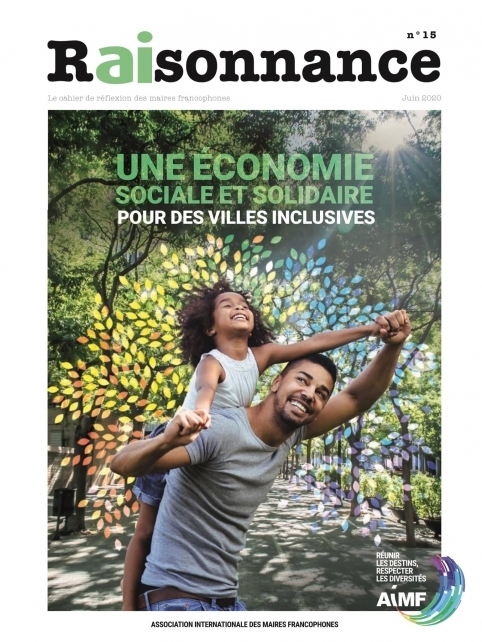The Social and Solidarity Economy for Inclusive Cities - RAISONNANCE N°15

Laurence Kwark, Secretary General of GSEF, recently contributed to the International Association of Francophone Mayors’ (AIMF) latest issue of Raisonnance, the Association’s periodical publication. In this issue, she provides the reader with not only a few regional success cases of co-creation of public policies in favour of SSE but also advocates for the way it can provide solutions for current issues, especially in relation to marginalized groups.
We must create the conditions for the SSE model to develop everywhere, not by being its blind advocate, but through sharing evidence of its effectiveness in order to convince decision-makers.
The full article is available in electronic format in the Download section below.
This latest issue of Raisonnance is on the topic of Une économie sociale et solidaire pour des villes inclusives ('Social and Solidarity Economy for Inclusive Cities') and assembles 18 distinguished contributions, including from GSEF members. One case study charts the experience that Gatineau, Canada, has obtained by bringing citizens together with municipal authorities to truly co-create policies beneficial to everyone. Mahamane Touré, Directeur of International Relations for the City of Bamako in Mali - currently GSEF's vice-president city for Africa - describes the emphasis that the city places on SSE for the harmonious development of its territory. For her part, Pauline Effa, member of SSE International Forum, outlines the recent passing of new laws in Cameroon institutionalizing SSE which can contribute greatly to development of the country. Also, another article lays out the ways in which the City of Dakar, Senegal, has adopted a strategy of inclusiveness on the social as well as the financial side. Lastly, the French Network of Local Authorities for a Solidarity Economy (RTES) is heavily involved in this issue of Raisonnance, with Christiane Bouchart (City of Lille), Mahel Coppey (Nantes Métropole) and Dounia Besson (City of Lyon), respectively president and vice-presidents of RTES, contributing articles.